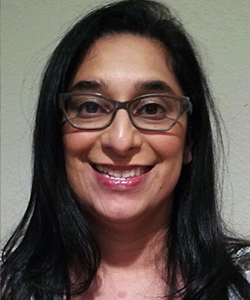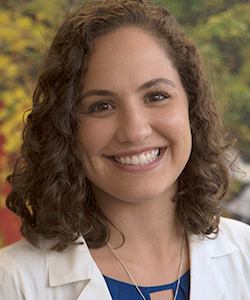
Current and Emerging Treatments
Last Updated: Thursday, October 21, 2021
Discover the latest on current and emerging therapies in the field of follicular lymphoma (FL) from two advanced practitioner experts, Haleigh Mistry, MS, PA-C, and Prachee Singh, PA-C, both of the University of Texas MD Anderson Cancer Center. Learn from their conversation focused on the mechanisms of action, efficacy, and side effect profiles of proven FL therapies, such as PI3-kinase inhibitors and antibody-drug conjugates, and investigational therapies including immunomodulators, EZH2 inhibitors, bispecific agents, and CAR T-cell therapy.
Meet the faculty

Prachee Singh
PA-C
The University of Texas MD Anderson Cancer Center
Prachee Singh, PA-C, is a physician assistant in the Lymphoma Department at The University of Texas MD Anderson Cancer Center. Previous to her current role, she worked for 16 years in the Department of Interventional Radiology and Sarcoma Medical Oncology. She is passionate about research, performance improvement, training, and patient education.

Haleigh Mistry
MS, PA-C
The University of Texas MD Anderson Cancer Center
Haleigh Mistry, MS, PA-C, is a physician assistant in the Lymphoma/Myeloma Department at MD Anderson. She has given several talks at conferences and has published numerous case studies and articles, on topics ranging from current therapy to long-term survivorship. She currently runs the advanced practice provider–led Lymphoma Survivorship Clinic.
References
1. Sutamtewagul G, Link BK. Novel treatment approaches and future perspectives in follicular lymphoma. Ther Adv Hematol. 2019;10:2040620718820510.
2. ClinicalTrials.gov: NCT03930953.
3. Schuster SJ, Bartlett NL, Assouline S, et al. Mosunetuzumab induces complete remissions in poor prognosis non-Hodgkin lymphoma patients, including those who are resistant to or relapsing after chimeric antigen receptor T-cell therapies, and is active in treatment through multiple lines. 2019 ASH Annual Meeting & Exposition. Abstract 6. Presented December 8, 2019.
4. Bishop MR. The case for CAR T-cell therapy in follicular lymphomas. Blood. 2019;134(7):577-578.
5. Hirayama AV, Gauthier J, Hay KA, et al. High rate of durable complete remission in follicular lymphoma after CD19 CAR-T cell immunotherapy. Blood. 2019;134(7):636-640.
